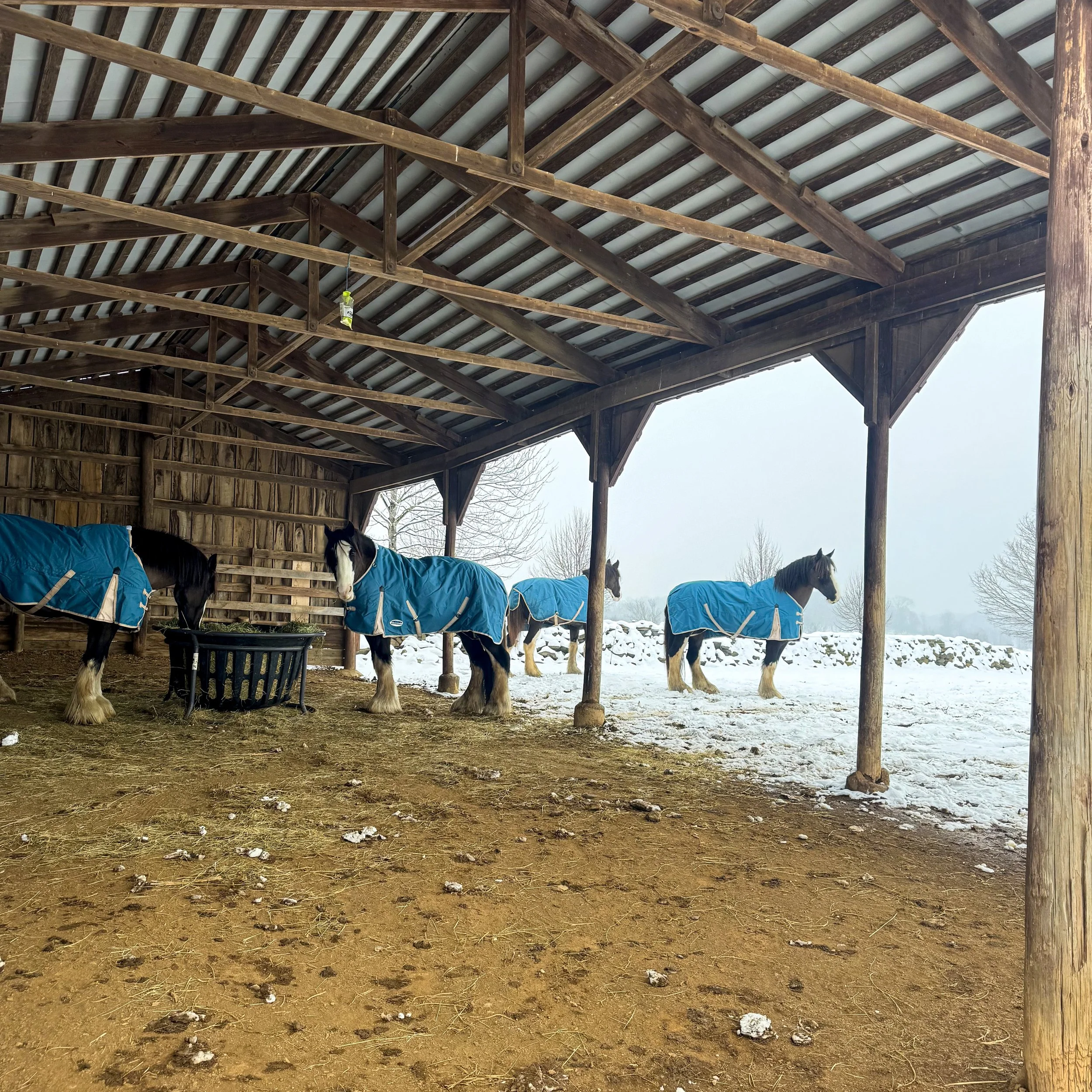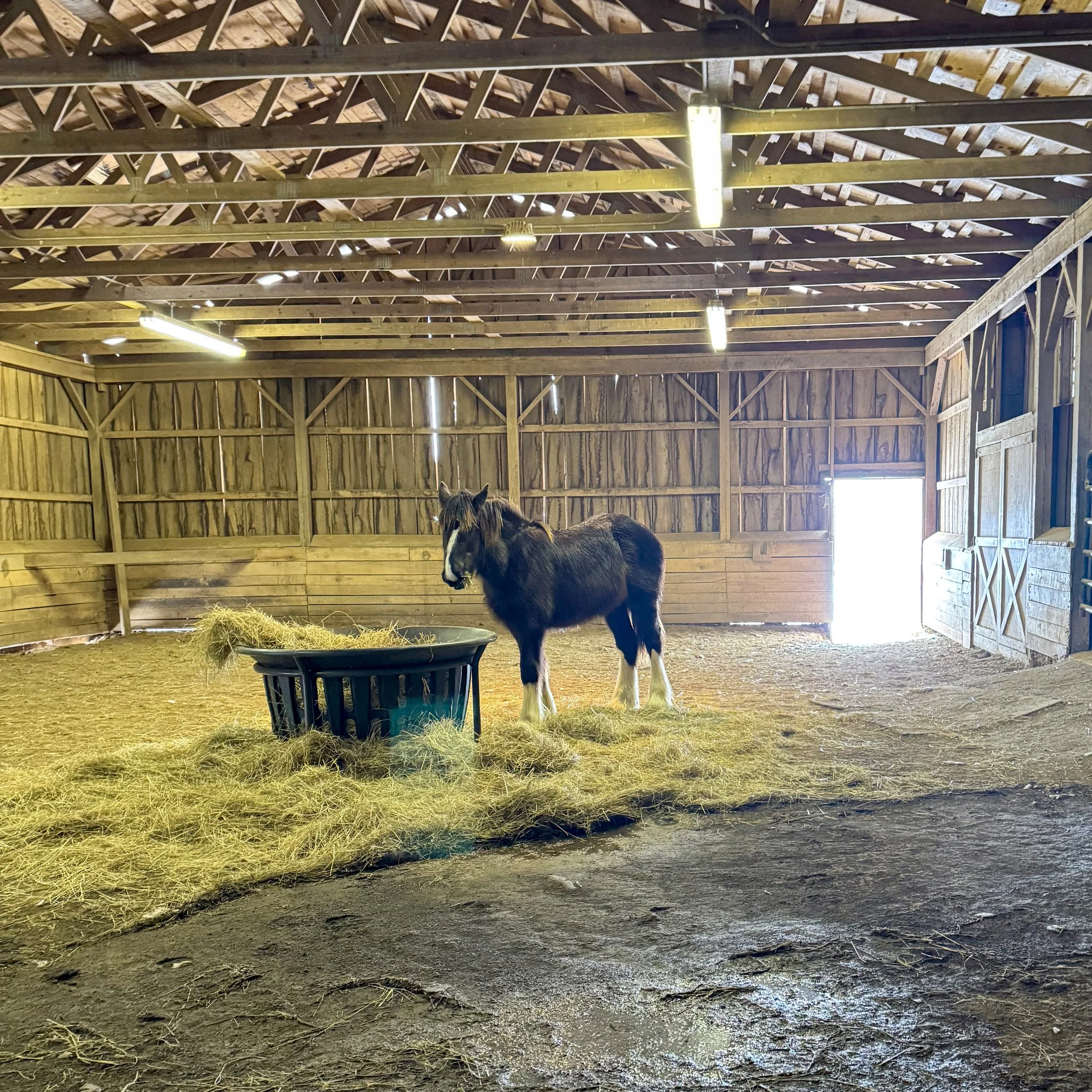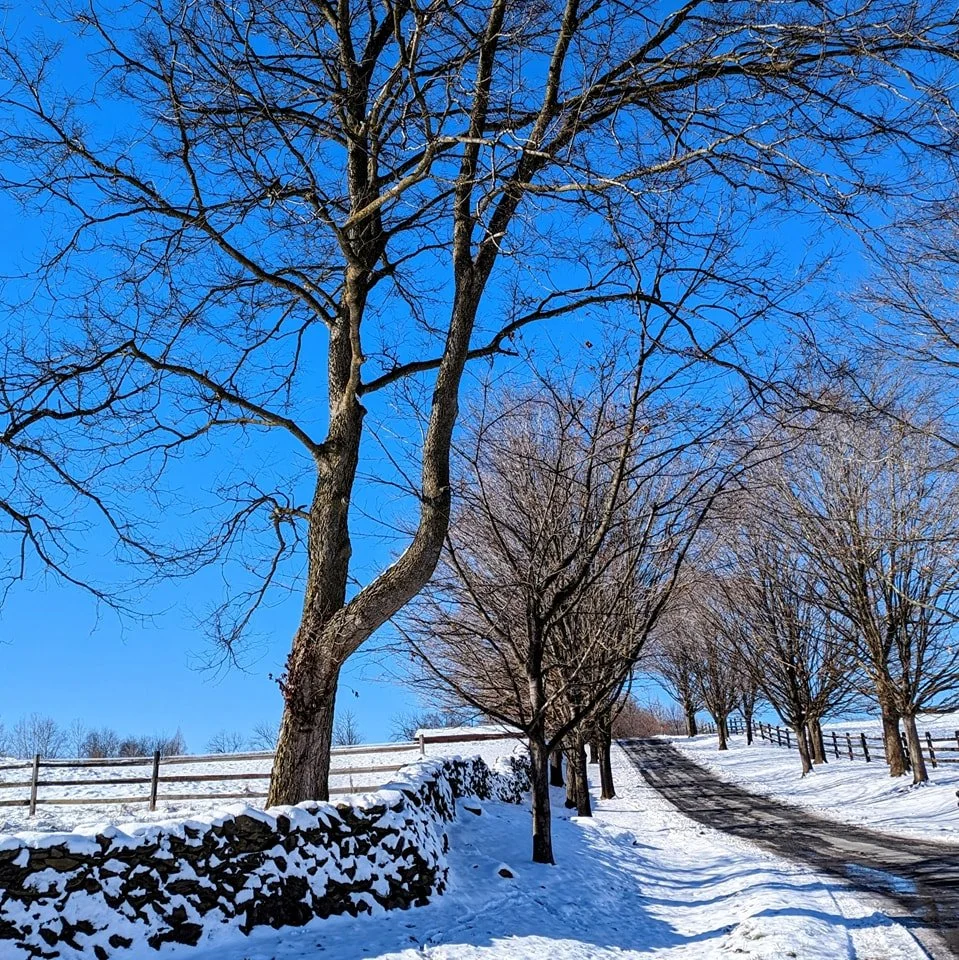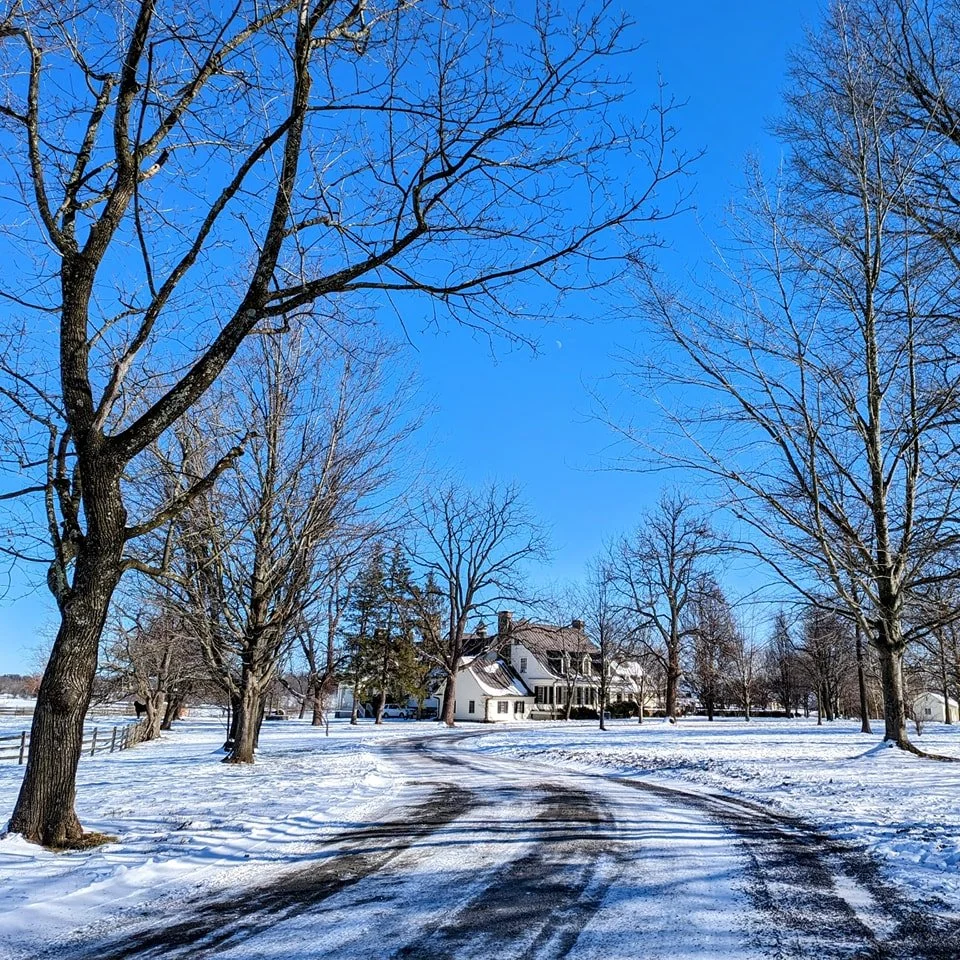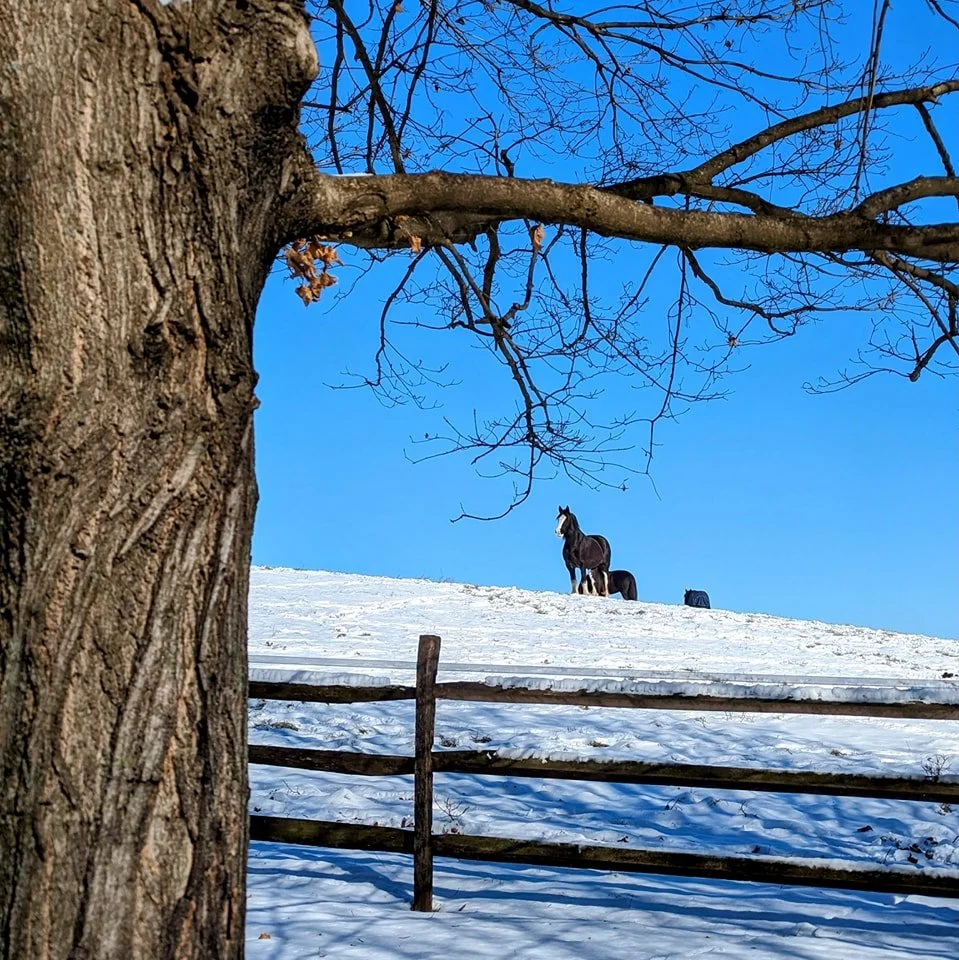Snow days on the farm: No rest for the weathered
At Ayrshire Farm, winter doesn’t pause, and neither do we
In this video, take a tour around AyrshireFarm with large livestock manager Mike Estienne as he checks on our cattle, pigs, horses, and barn cats – plus, don’t forget about farm dog Wylie!
This is the seventh installment in the WholeHarvest Year series, which aims to chronicle the farming cycle at Ayrshire Farm.
For most people, a snow day means stocking up on bread and milk, grabbing blankets, and settling in for a day of movies and hot cocoa. But for farmers, it’s a different story. Instead of cozying up inside, we’re layering on coveralls and trudging through the snow to haul hay, break ice from water troughs, and check on animals. There’s no hitting pause on farm life — no matter how deep the snow gets, our animals rely on us to keep them warm, fed, and safe.
On snow days at at Ayrshire Farm, there are 460 cows, 50 pigs, and dozens of chickens depending on us for food, water, and shelter. Not only that, but our customers and our restaurant depend on us too. So, whether it’s snowing or sweltering at 100 degrees, we’re out there doing whatever needs to be done to keep the livestock happy and healthy.
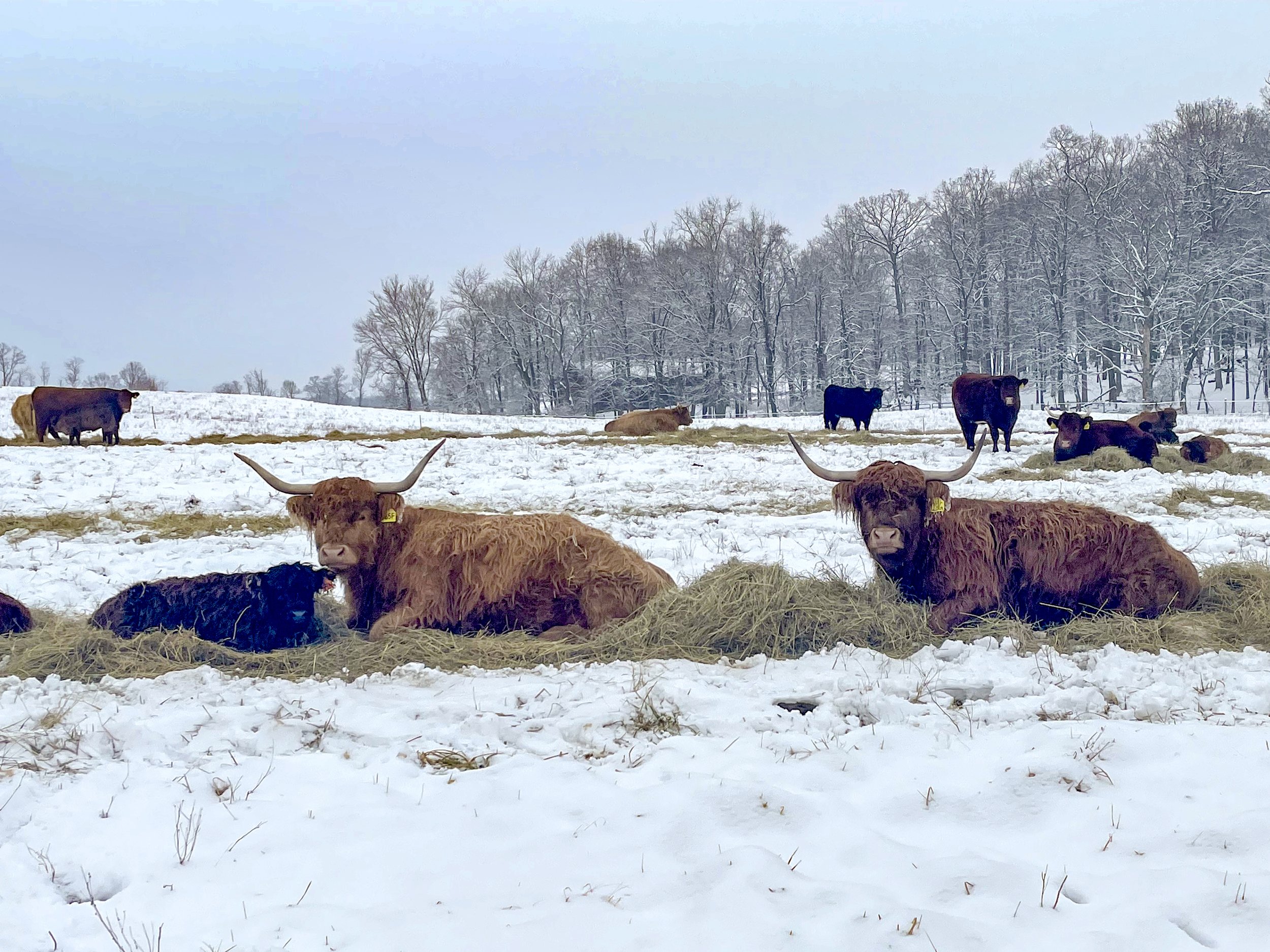
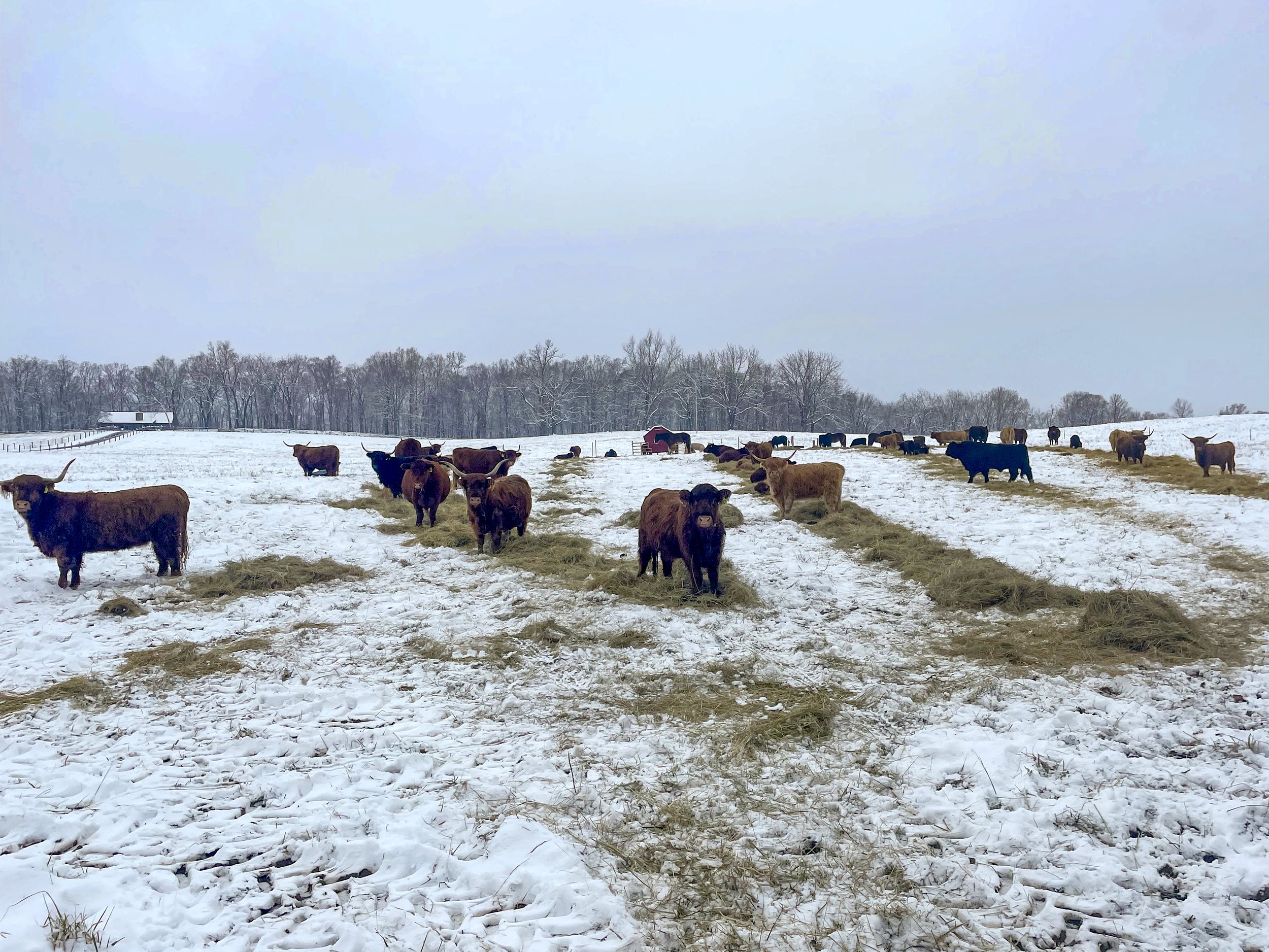
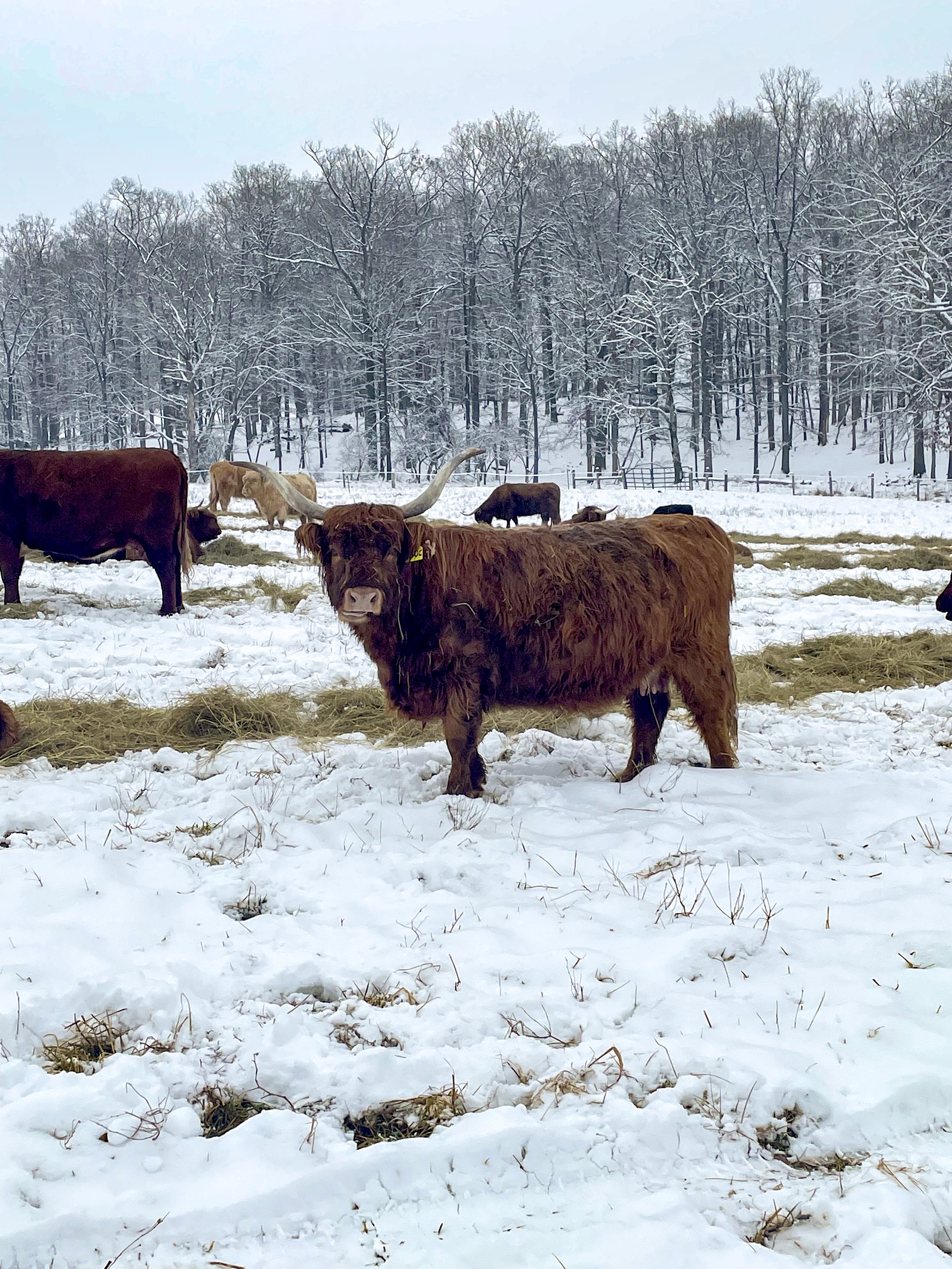
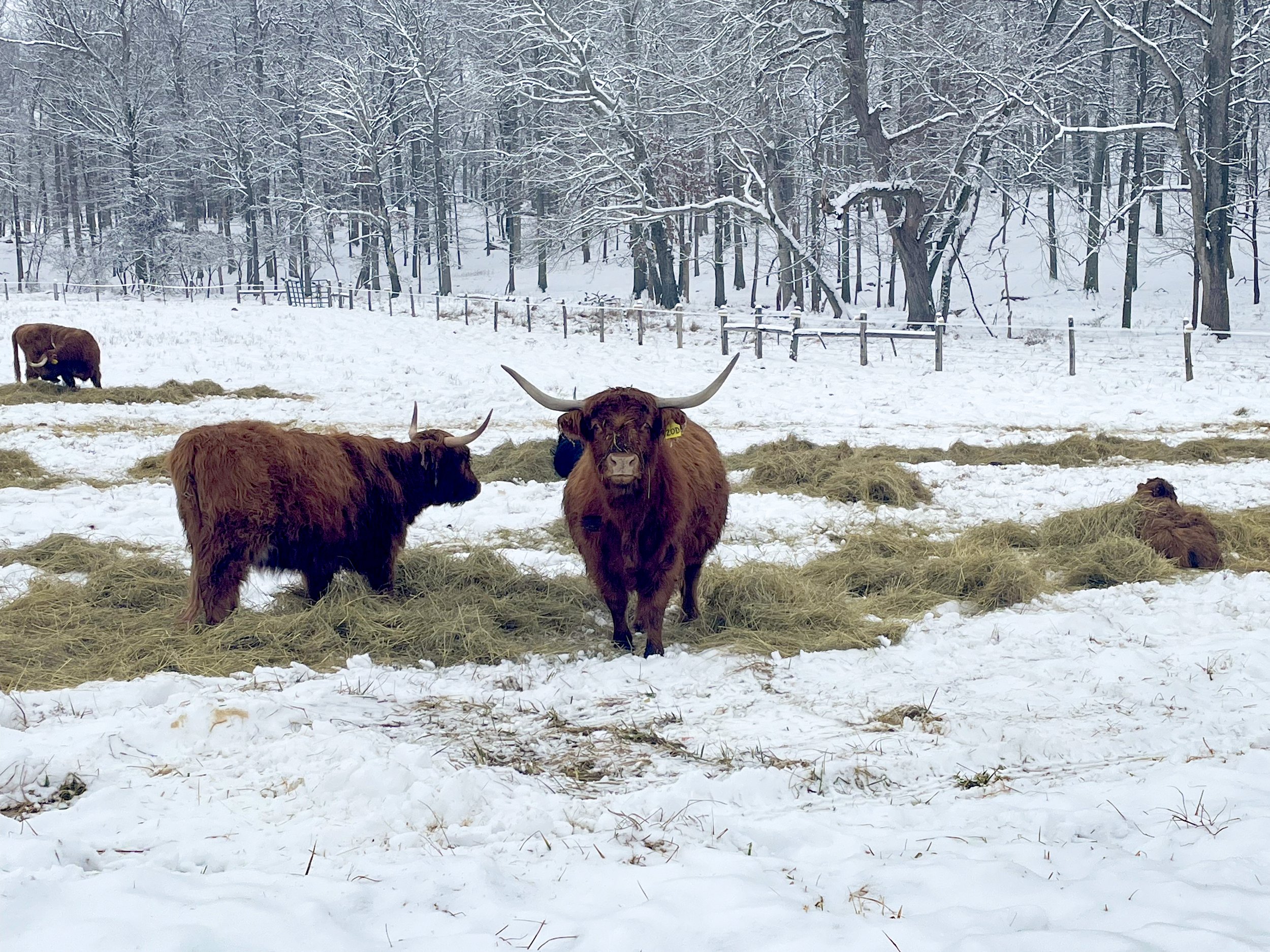
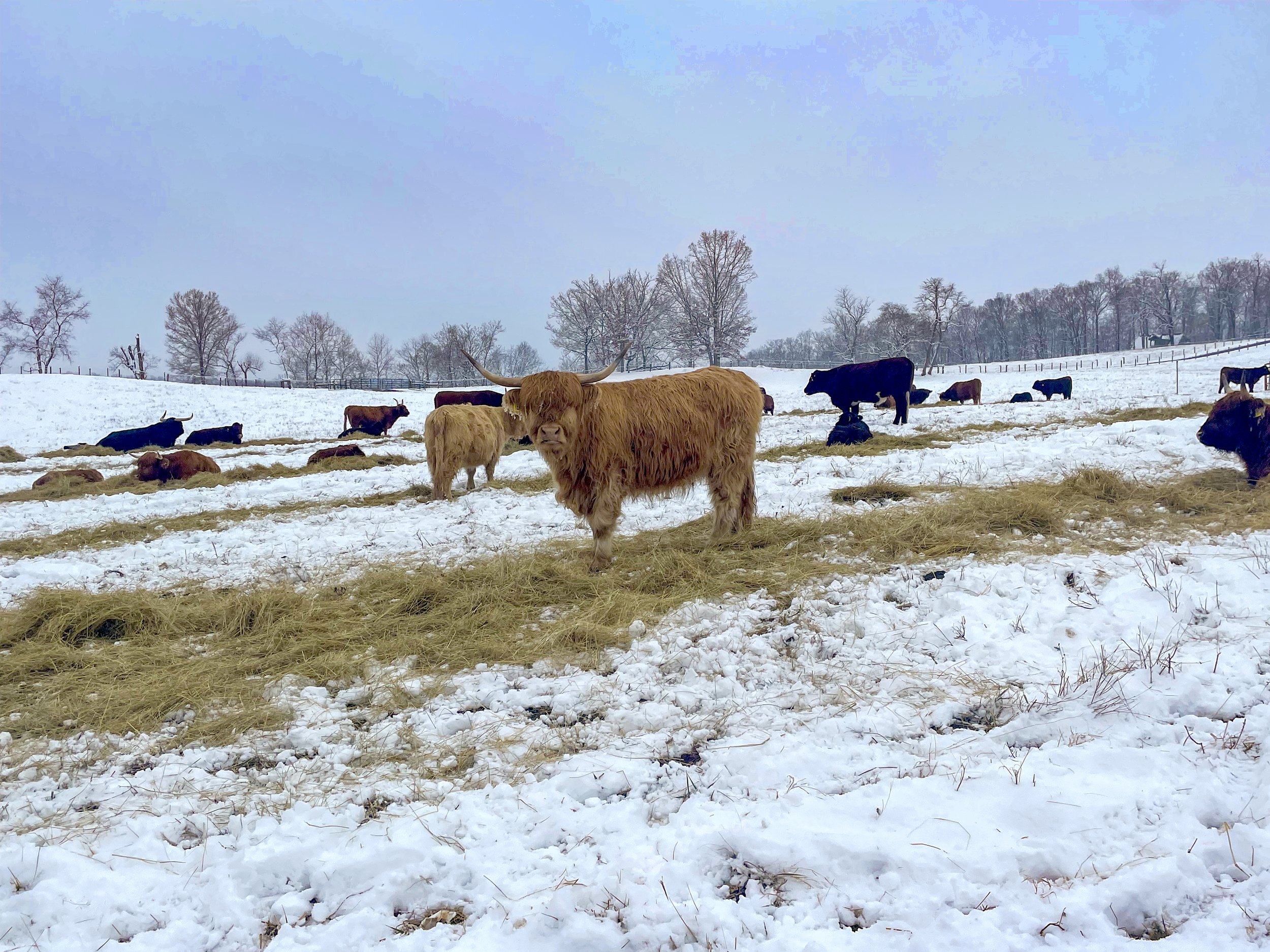
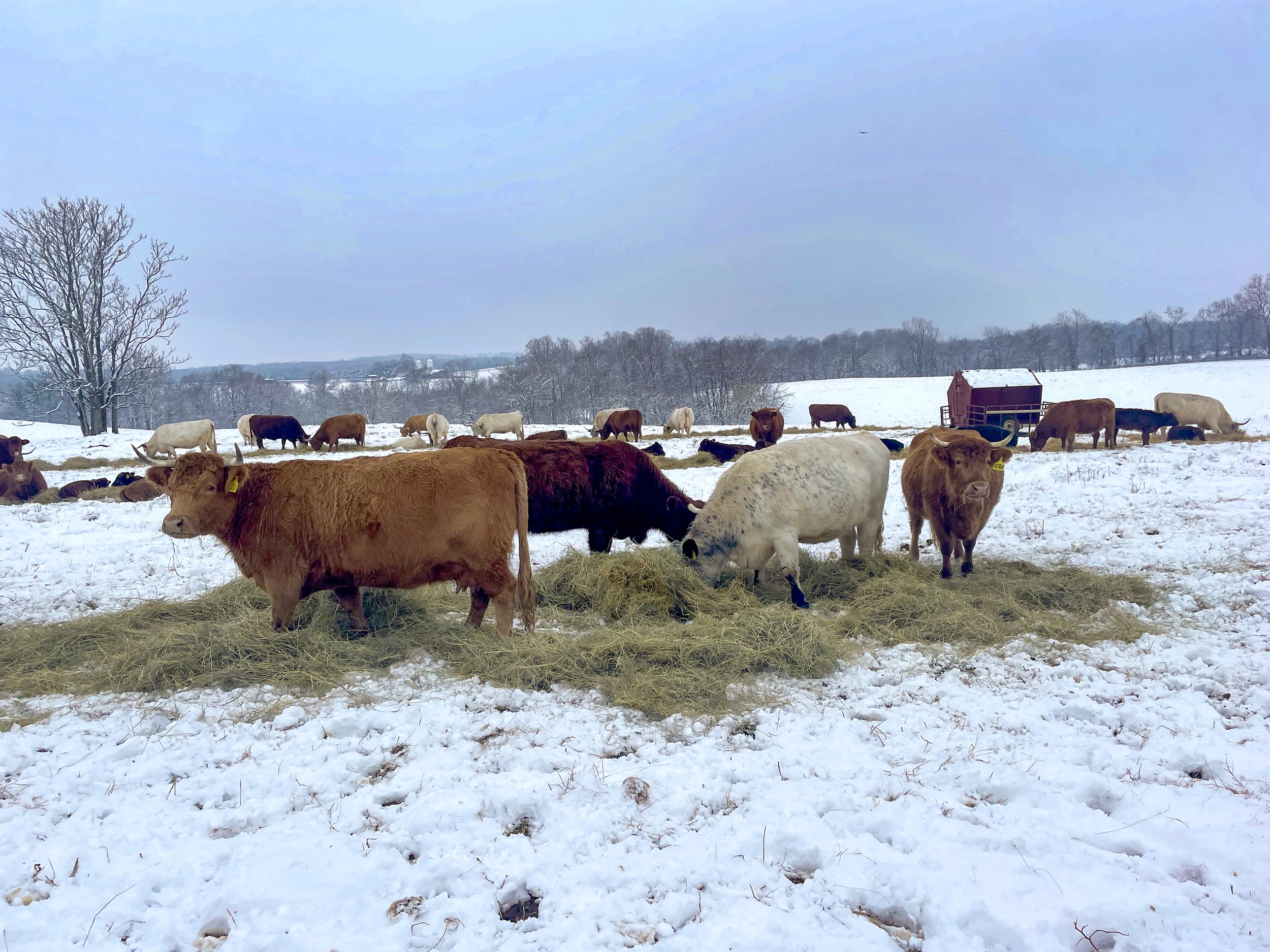
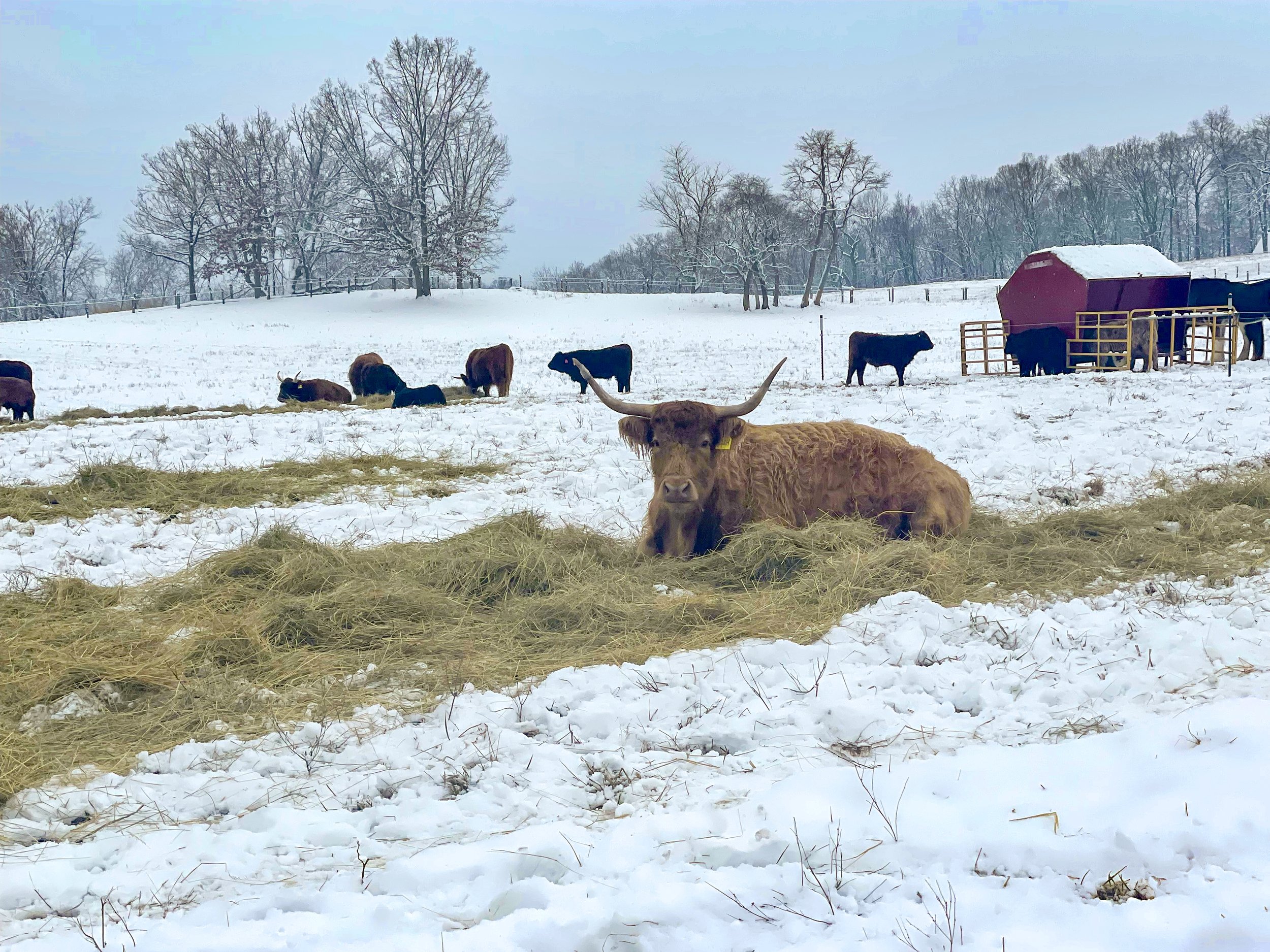
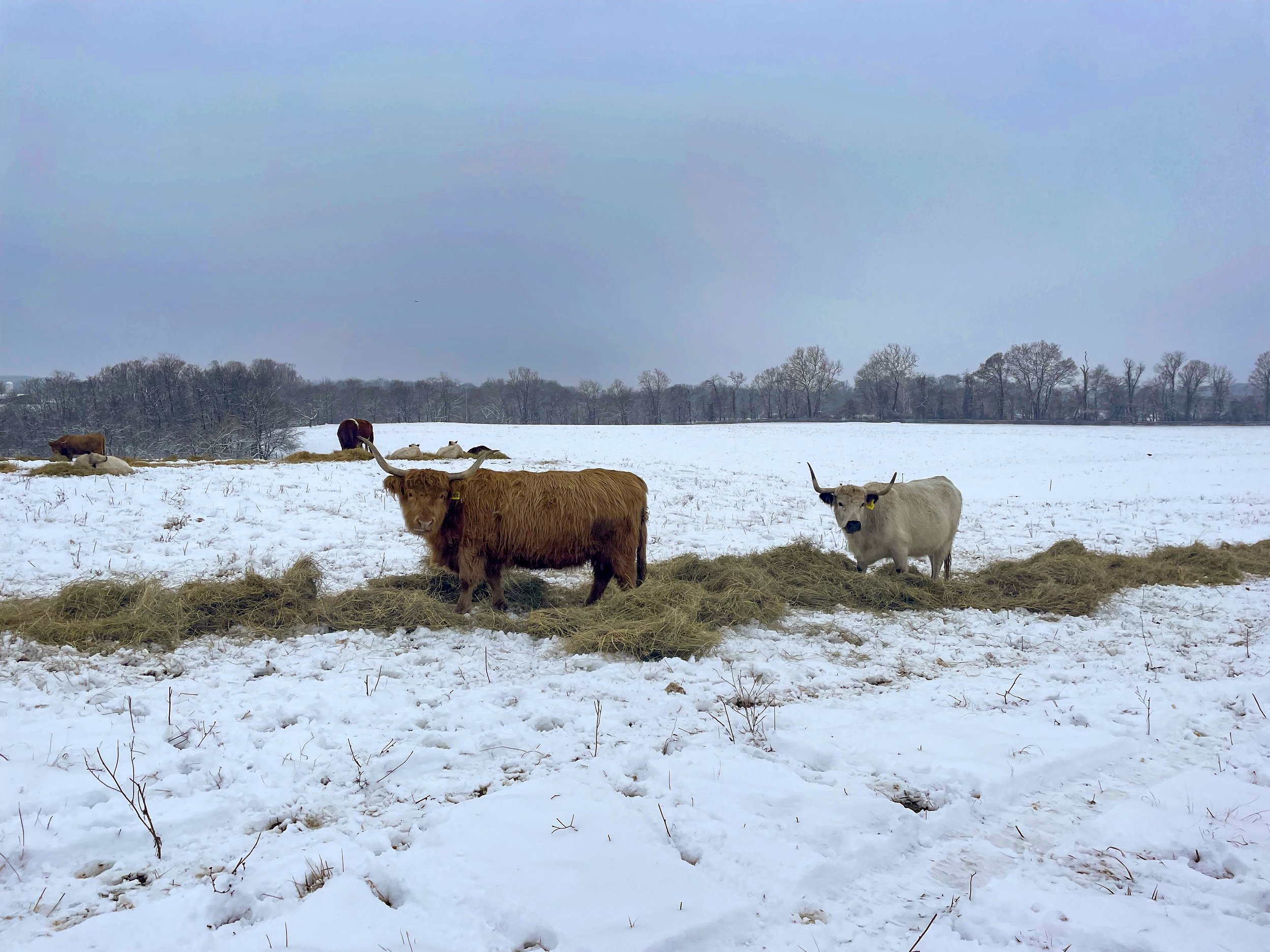
Our heritage-breed animals hail from Great Britain and have evolved over centuries to withstand harsh winds and rugged wintry conditions. They love the snow — especially our Scottish Highlands. Protected by a thick, shaggy double-coat, these cows are perfectly content in winter. Drive around Ayrshire Farm on a snowy day, and you’ll see Highlands relaxing and even snoozing in the soft, white stuff.
Our cattle tolerate cold temperatures remarkably well. In addition to the Scottish Highlands, Ayrshire Farm also raises Ancient White Park and English Longhorn cattle. These breeds favor chilly temperatures, though they lack the Highlands’ insulating fur. To help them cope with the cold, we don’t keep our cattle in barns (as might be the case on dairy farms). Instead, when the snow falls, we move them to pastures with natural windbreaks.
Ayrshire Farm cattle graze on a “hay wall” following the blizzard of 2016.
Trees, hills, and banks serve as barriers to block the harsh winds, and our farm crew monitors conditions closely to ensure the cattle can take advantage of these natural protections. When the snow is about an inch deep, we strategically spread extra hay in zigzagging rows across the fields, using the terrain’s natural shelter and providing both food and bedding for the animals. Ayrshire Farm makes its own hay, ensuring that the cattle get a dried version of the same food source they rely on year-round.
While a typical snowfall in Virginia ranges from 4 to 8 inches, every few years, a major storm rolls through, dumping a foot or more of snow accompanied by blustery winds. When that happens, our crew sets to work building hay walls in the pastures. They stack rectangular hay bales several high, then cut the twine to create both a windbreak and a bountiful food source for the cattle.
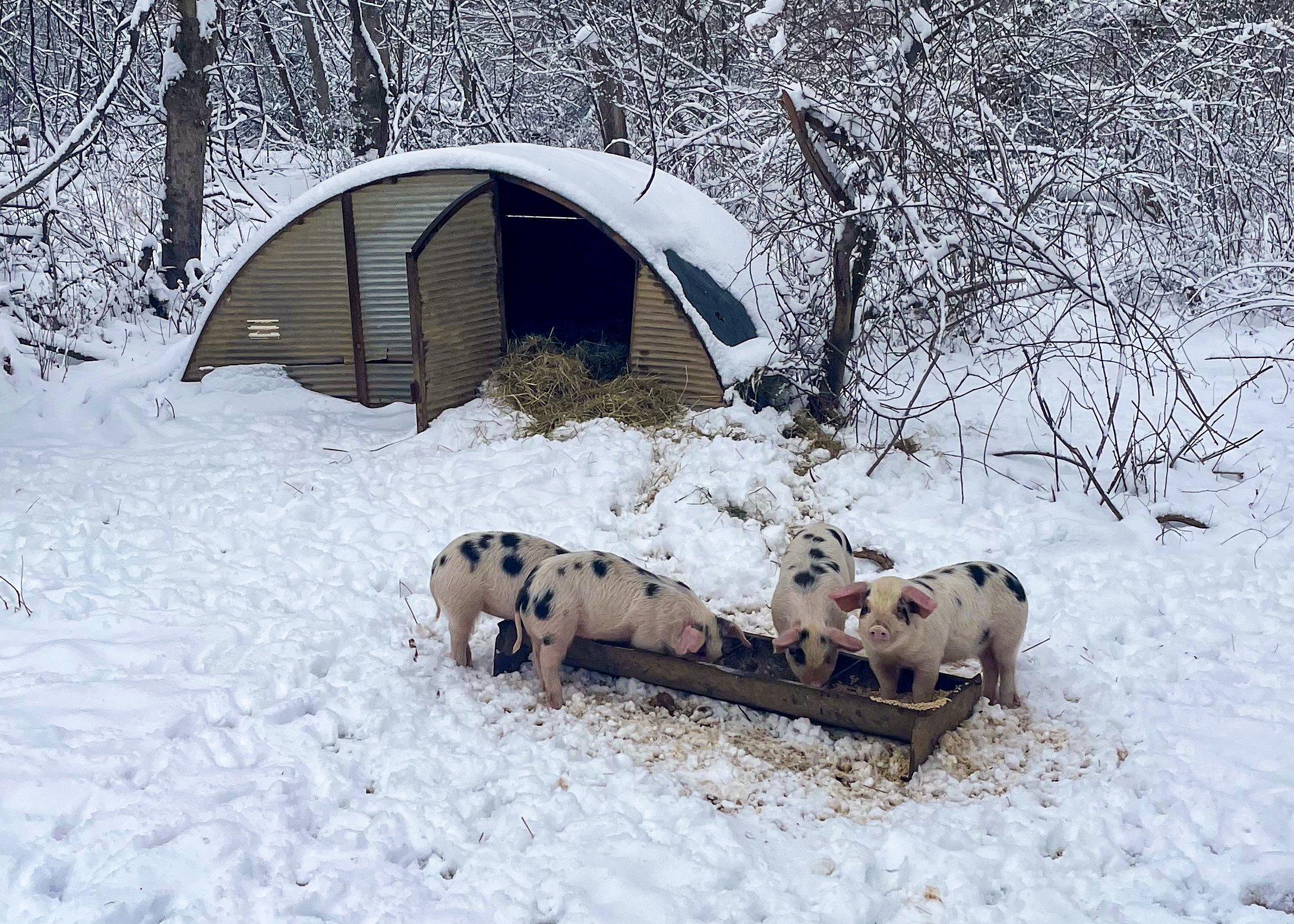
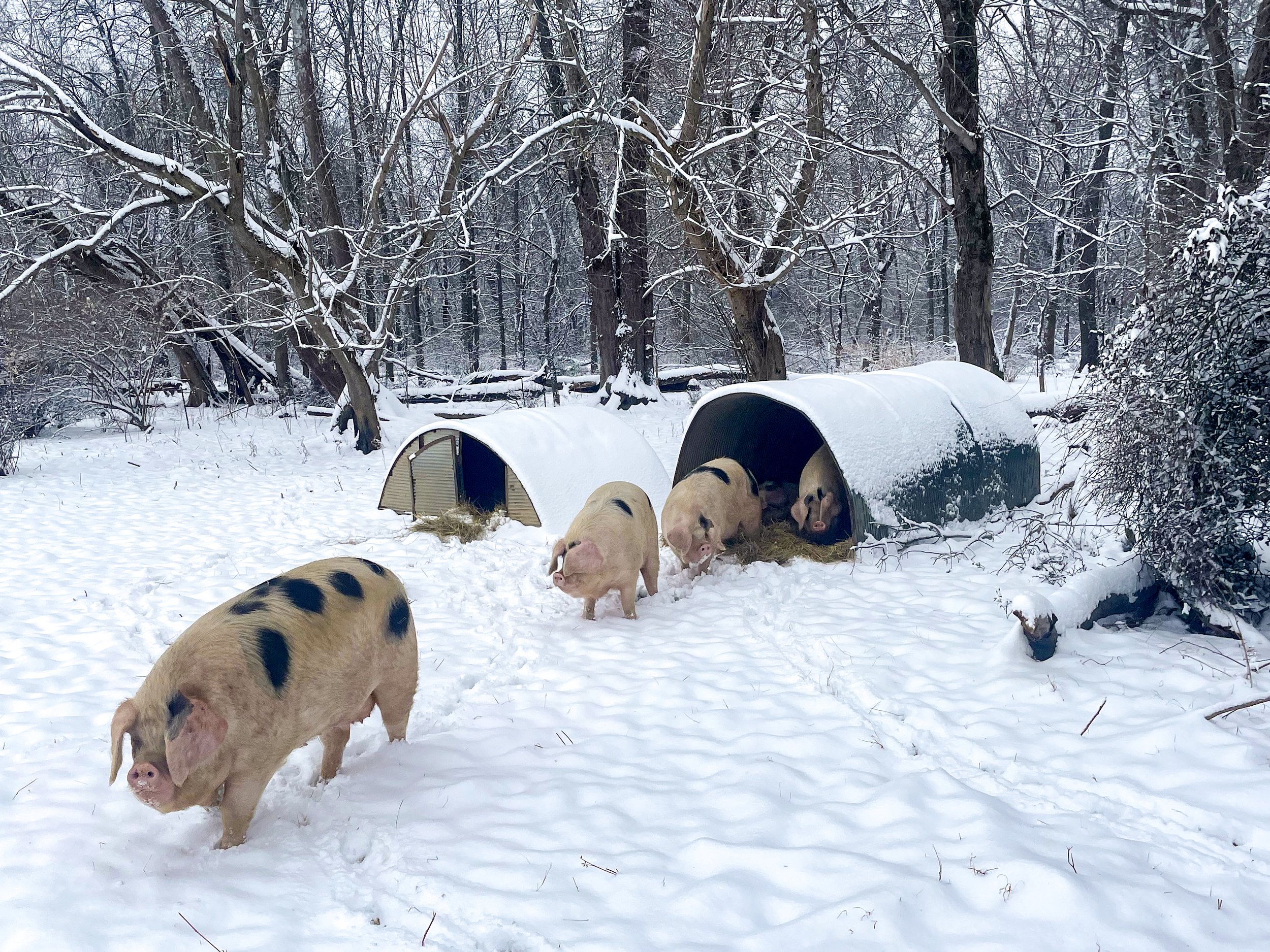
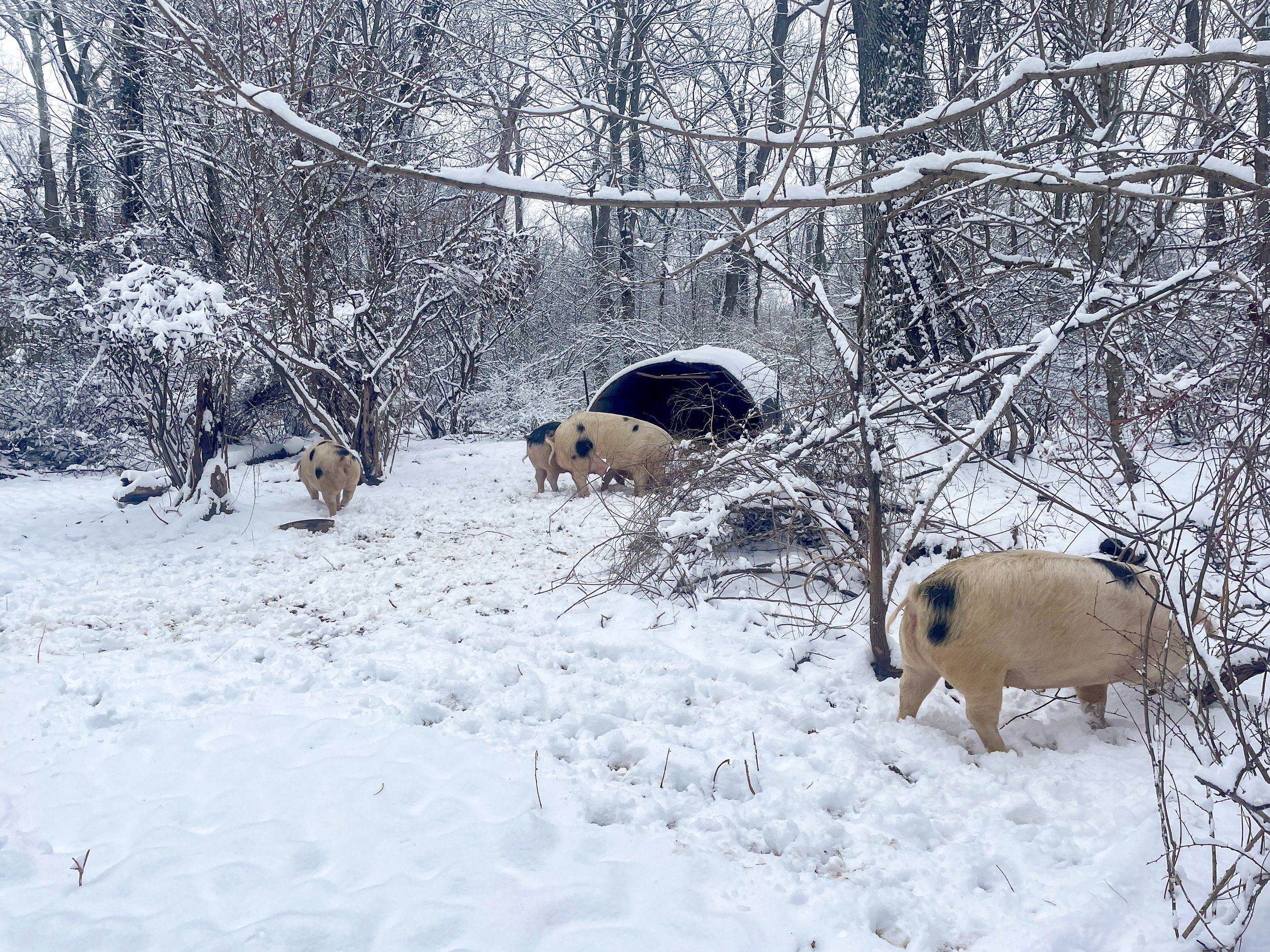
Elsewhere on Ayrshire Farm, Gloucestershire Old Spot pigs are equally well-suited to wintry conditions. Their natural compulsion to snuggle together (in all weather, including summer) helps them thrive in the cold. They pile into their metal huts, which are filled with fresh, fluffy hay, and hunker down together. The warmth they generate is so intense that steam often rises from their cuddle piles. Living in woodland pastures, the pigs enjoy natural windbreaks from trees and brush, in addition to the shelter of their huts. They also have plenty of logs and underbrush to root around in. And when the snow falls, the pigs, especially the piglets, love to play in it.
Ayrshire Farm is also home to 17 Shire draft horses. Another British breed, they are lovers of cold weather. Many of our horses lived in Canada before moving to the farm, and the chilly temperatures seem to remind them of home. You’ll often find the Shires happily dozing in the snow or frolicking like giddy children. When snow is in the forecast, we move them to pastures with snug, windproof run-in shelters where they can escape the worst of the weather. Each shelter is stocked with an aluminum ring full of hay, which not only provides food but also generates warmth as the horses eat.
Shire horses Ruby, Destiny and Anisette enjoy a snow day at Ayrshire Farm.
Unlike some domestic horses, our Shires don’t wear blankets in the winter — their thick, fluffy coats provide natural insulation, and compressing their hair with a blanket can actually make them colder. However, our driving horses are an exception. Since they are partially clipped to prevent overheating when working, they wear waterproof blankets that help block the wind chill. Their hay is also kept in a sheltered area, ensuring they stay dry and comfortable through the storm. Meanwhile, members of our horse department make the rounds twice a day to clean shelters, break ice from water troughs, and provide fresh feed and bedding.
One type of animal on the farm that’s not naturally inclined to snow survival is our chickens, but even they manage quite well. Ayrshire Farm’s laying hens and broiler chickens are free-range, meaning they have access to both indoor and outdoor spaces at all times, allowing them to live as naturally as possible. When it snows, we clear their pasture so they can roam outside and move freely between their house and the open area. As always, their house is cleaned, and they’re provided with fresh wood shavings, food, and water.
For our land, snow is an enormous blessing in many ways. As a regenerative farm, soil health is central to everything we do. We rely on healthy pastures to nourish our animals and support the native critters and pollinators that call this area home. Often referred to as “a poor man’s fertilizer,” snow is rich in nutrients like nitrogen and sulfur, which slowly seep into the soil as it melts. This gradual process is far more effective than rainfall, which can wash away nutrients before they’re absorbed. Additionally, snow serves as an insulating blanket, shielding plants and soil from harsh winds and freezing temperatures. Its slow melt also helps maintain moisture levels, benefiting both the upcoming growing season and those to come.
At Ayrshire Farm, snow days may not mean cozying up by the fire, but they do bring a unique beauty and rhythm to our work. While we’re out tending to the animals and ensuring their comfort, we’re also reminded of the resilience of nature and the role we play in nurturing it. Every snowfall is another chapter in the story of regenerative farming. So, while the world slows down, we keep moving — because here, every day is a farm day.



